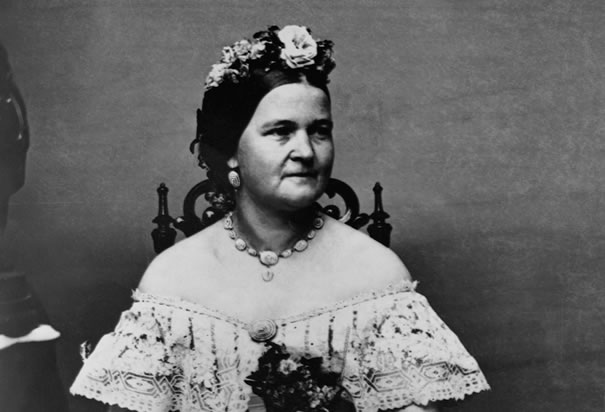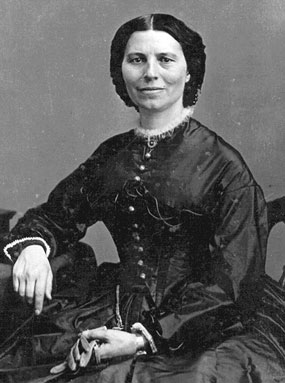For National Women’s History Month, we wanted to highlight some relevant stories and contributions.
Mary Lincoln
Mary Lincoln was one of the most controversial first ladies in her day, even if much of the criticism was unwarranted. Perhaps the public perception might have been different if they knew how dedicated the First Lady was to visiting hospitals and providing comfort to injured and sick Union soldiers. She almost never made it public knowledge when she visited hospitals. While visiting, she often wrote letters for the soldiers she visited. One such letter shows how much Mary Lincoln cared for mothers whose sons, husbands and brothers left to fight the war. After meeting 16-year old James Agen, she wrote a letter to his mother back in New York on her second visit to the young soldier.
Dear Mrs. Agen: I am sitting by the side of your soldier boy. He has been quite sick, but is getting well. He tells me to say to you that he is all right. With respect for the mother of the young soldier, Mrs. Abraham Lincoln.
Ironically, James Agen didn’t even realize it was the First Lady who had written that letter. Indeed, when he returned home and his mother asked him what he thought of Mary Lincoln, he responded “I never met Mrs. Lincoln. What made you think I had?” Only after Mrs. Agen showed him the letter did he realize it was the First Lady that had visited him. Clearly Mary appreciated the sacrifice soldiers made in the Civil War, even if she did boast or make a big deal out of her demonstrations of support.
– Zach Klitzman, President Lincoln’s Cottage
Clara Barton
Over the course of the Civil War, nurse and relief worker Clara Barton proved the influence one woman could marshal on her own in providing medical care to the wounded, supplies to those in need, and solace to the families of the missing, and in the process earning the respect of many of the soldiers she encountered. Profoundly influenced by her Civil War experiences and European relief agencies, she continued her involvement in relief activities and went on to found the American Red Cross.
– Michelle Krowl, Library of Congress
Barton’s logistical mastery in supplying the troops, her service as a hospital and then field nurse, and her tenacious work on behalf of missing soldiers are legendary. But what enabled all those accomplishments, and what amazes me most, was Barton’s empathy and her perception. As she demonstrated in 1852 when she argued for public schooling in New Jersey, and then opened one of the first public schools in the state that year, Barton was able to identify a need and pursue a solution. After the war, Clara Barton did not create an office, and a system, for locating missing soldiers because someone asked her to do so. She was insightful enough to discern the problem, and then smart enough to figure out how to fix it.
– Laura Schiavo, The George Washington University
Francis Clalin, Pauline Cushman, Elizabeth Van Lew, Harriet Tubman, Susan B. Anthony, Elizabeth Cady Stanton, and other nurses, matrons, political leaders, teachers etc…
We often describe the Civil War as a brother’s war, but in truth, it was true family war. Women made essential contributions at every level of the conflict, from the homefront to the battle front.
– Matthew Pinsker, Dickinson College. View Professor Pinsker’s quick clip from the History Channel on women’s roles in the Civil War, here.


